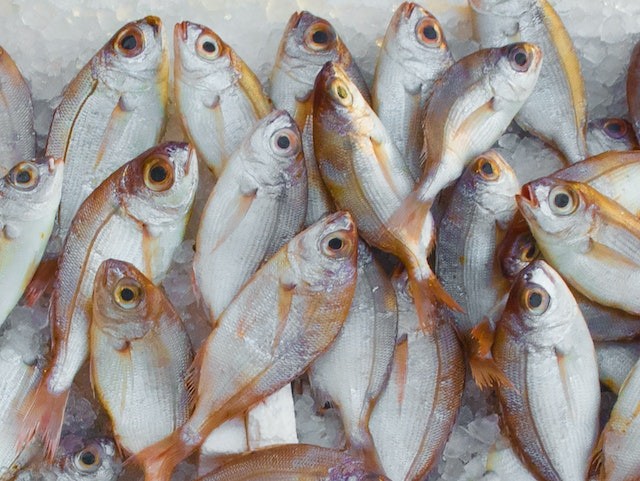
Pescatarians add fish to their diet, with some thinking that it's better to consume them than other animals because they don't feel pain. However, an expert said it wasn't true.
Does Fish Feel Pain?
Since the early 2000s, Sue, a 60-year-old Michigan resident who wished to remain anonymous out of concern for criticism from proponents of both animal welfare and meat consumption, has been a pescatarian. Most of her family members, including her son, a fisherman, are vegetarians. Pescatarians are vegetarians, but they add fish and seafood to their diet, according to Healthline.
When asked if she thought fishes felt serious pain, she said that she believed they experience pain, but not the same kind as a mammal, Newsweek reported.
She argued that the fundamental distinction between fish and chickens or cows was that fish don't tend to their young, unlike mammals.
She claimed that a salmon, which goes upstream to die and lays hundreds of eggs, is not the same as a warm-blooded animal, which experiences sorrow and emotion. Sue also eats fish to diversify her diet, particularly when it comes to fast food.
She admitted to enjoying eating fast food, and vegetarian options aren't great. So, she usually goes for fish.
According to a 2015 study, fish do not have a cerebral cortex and hence "cannot experience pain or fear," which has implications for our view of phenomenal awareness. Based on the notion, only humans and primates can experience "emotional pain" since they are the only animals having a cerebral cortex. The cerebral cortex is the section of the brain regarded as the "thinking" area.
All sentient beings must be able to feel pain to respond to warning signs of danger and defend themselves. Fish would also have gone extinct due to their actions if creatures were incapable of feeling pain or fear. Many species that exist today would have perished if this were the case.
Sneddon and her colleagues Victoria Braithwaite and Michael Gentle made the most compelling scientific case for fishes' ability to experience pain despite lacking a cerebral brain in 2002. They were the first to notice that fish had nociceptors, pain receptors that allow fish to feel both physical and possible emotional anguish.
Sneddon found that fishes have nociceptors all over their bodies, including in their faces, lips, eyes, and fins. They also discovered that these nociceptors in fishes respond to stimuli like cutting, crushing, and chemicals. The pain responses were very important in fish as they caused them to behave differently in various circumstances.
ALSO READ : Numerous Heavily-Fanged Cannibal Fish With Dagger-Like Teeth Washed Ashore in Oregon Leaves Experts Baffled
How to Eat Fish Ethically?
For pescatarians hoping that eating fish is ethical over consumption of other meat, you will be disappointed because animal rights activist and philosopher Peter Singer said there is no ethical way to eat fish.
He highlighted the plight of live fish in restaurants, including a recipe for a well-known South Asian soup that uses loaches, which have salt poured on them while they are still alive to purge them. Also, there are many videos about food on YouTube where the fish can be seen writhing in apparent anguish before being boiled alive.
Singer recommended eating more carp, a primarily herbivorous fish that does well in farm surroundings, but he also warned that there will still be suffering until fish can be produced affordably at the cellular level.
However, Sneddon and Singer concur that contrary to common belief, eating fish violates more ethical standards than eating other proteins because fish are equally capable of feeling pain and because of the disproportionate suffering they endure in an unequally controlled business.
RELATED ARTICLE : Omnivorous Fish With Human-Like Teeth Reportedly Reeled in North Carolina: Is This Real or Fake?
Check out more news and information on Fish in Science Times.










